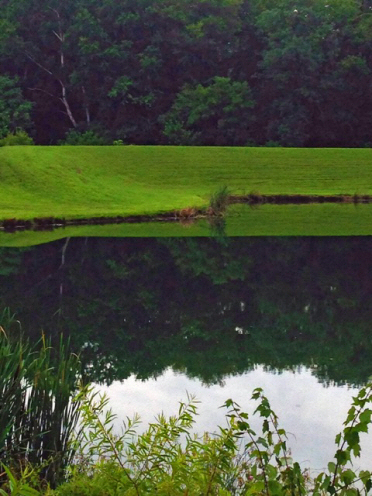

Nutrient Management Plan
Do I need a Nutrient Management Plan?
Nutrient Management Plans are required if your operation has more than (8,000 pounds) of live animal weight or you net $2,500 a year in income from your farm operation.
Why would I want a Nutrient Management Plan?
Aside from the fact that it may be required there are benefits to all of the information you can get from a Nutrient Management Plan. Nutrient Management Plans help identify the amount of nutrients required for your pastures to produce the best forage for your animals. Proper levels of fertilizers and proper pH will also help keep weeds at bay.
If I don’t have to have a plan can I still benefit from one?
Yes you certainly can benefit from one. Even if it is not required. A plan will help you identify needs for your soils and management of your nutrients.
Am I required to do follow the recommendations of a Nutrient Management Plan?
No, the recommendations of a Nutrient Management Plan are based on the best available science. A plan will give you upper limits of nutrient input however you are not required to do so.
How often to do need a Nutrient Management Plan?
If you are not spreading manure a Nutrient Management Plan can be written and last for 3 years. If manure is applied the manure needs to be tested and your Nutrient Management Plan needs to be updated once every year.

Wildflowers
Why would I want wildflowers?
Wildflowers benefit bees, butterflies, and insects. That is important because without these plants pollinators cannot survive. Without pollinators we will lose fruits and vegetables. As habitat for pollinators decreases so to will we see a decrease in vegetables and fruits. After wildflowers have bloomed and made seeds they are an excellent food source for birds.
Aren't wildflowers expensive?
Wildflowers can be mixed with perennial and annual plants. For this reason we have wildflower areas that have not been touched for over four years. The initial investment pays off in years of pollinator improvement.
What do I have to do for care wildflowers?
Generally wildflowers require little to no maintenance after they are established. Wildflower areas are expected to have meadow type appearance.
What types of flowers are in wildflower mixes?
There are many standard mixes that are available in addition to that we can mix a custom blend depending on your site and your preferences.
Where do wildflower seeds come from?
The seeds that we use are harvested n the northeast and work well in this area. We also use seeds that are harvested here in Maryland.
Pond Maintenance
My pond is covered with green slime can you do anything with it?
Sure we can. We are trained and licensed to improve water quality in ponds. We have the ability to treat surface and sub-surface issues.
If my pond has algae or green stuff growing on the surface can that hurt the aquatic life?
Yes that can be very detrimental to aquatic life. Excessive plant material or algae can deplete oxygen levels in the pond causing harm to fish and other aquatic animals.
What type of products do you use?
We have a number of products at our disposal that are not detrimental to aquatic life when used properly. There is not a one product cure all. It is very important to first identify your issues and then address them with specific treatment plans.
How often does my pond need treated to maintain a healthy aquatic environment?
The number of treatments used will be determined by the issues that your pond has. Generally 4 treatments per year will handle most algae problems. However, weather, rain fall and nutrient levels in your pond will determine proper treatment intervals.
Lime and Fertilizer
Is lime really necessary?
Lime is necessary because without a proper pH plants cannot utilize fertilizer properly. Lime in most cases is more important than fertilizer.
When do you lime?
You can lime anytime as long as you can get the proper equipment on the field.
When is the best time to fertilize?
A nutrient management plan can help target timing for fertilizer applications. In many cases, it’s beneficial to fertilize in the Spring and Fall however, each set of circumstances require evaluation to achieve your objectives.
How do I know what fertilizer to use?
Fertilizers can be blended to match your specific needs. Custom blended fertilizer is always the best choice.
Soil Nutrients & Inputs
Who should do soil tests?
Anyone can do a soil test however, it is important to do them correctly. In most cases it’s best to have someone with experience to do your soil test.
How often should I do soil tests?
If you’re not applying organic fertilizers, soil tests should be taken every 3 years or when there are major changes in your management strategy.
How do I make sense of my results?
Evaluating the results of a soil test from the labs requires experience in soil science, nutrient inputs, and management strategies. It may very well be best to have a support team work with you.
Pesticides
Are they safe for pets and horses?
All pesticides come with specific labeling that explains everything that you need to know to use them safely and efficiently. Pesticide should not be considered automatically safe. They should always be used with caution and by trained personnel. When they’re used properly they’re safe.
How long do I keep horses off my pastures?
Once again, it is most important to read the labels. Specific re-entry times are spelled out clearly for people and animals.
Are there organic pesticides that can be used?
Yes, there are a number of organic materials available now and more are coming on the market all the time. If you’re interested in organic material feel free to reach out to us.


